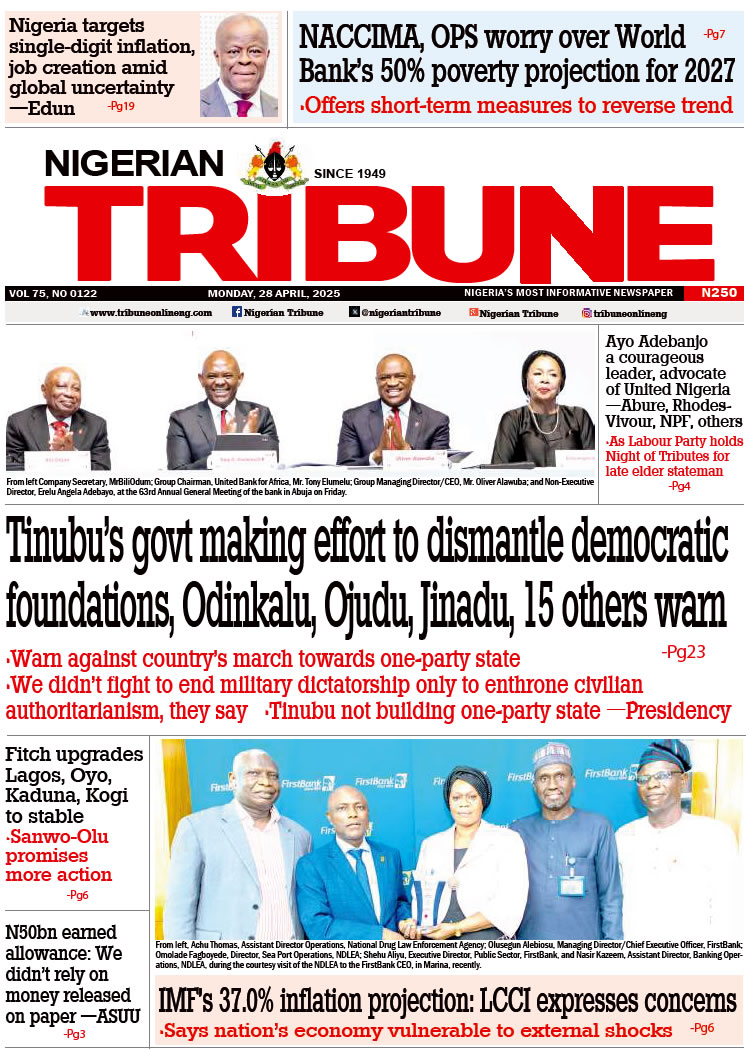…vows judiciary’s intervention
The Chief Justice of Nigeria (CJN), Justice Kudirat Kekere-Ekun, on Monday expressed concerns over the incessant deaths and injuries in Nigeria’s electricity sector and assured that the judiciary would intervene to curb the troubling trend.
Speaking at the 2025 National Seminar on Regulations in the Electricity Power Sector, organised for judicial officers by the National Judicial Institute (NJI) in Abuja, the CJN recalled that in 2024 alone, 112 electricity-related deaths were recorded in Nigeria, alongside 95 cases of injuries of varying severity.
Apparently displeased with the trend, Justice Kekere-Ekun stressed that the judiciary must take a proactive stance in enforcing safety regulations within the electricity sector.
According to her, operators who fail to comply with safety reforms must henceforth be held accountable, while victims and their families must receive the justice they deserve.
“The safety of our citizens must never be treated as incidental—it is a legal and moral imperative. I am confident that this Seminar has been designed with these urgent needs in mind.
“The Nigerian electricity sector stands at a crucial inflection point. It is undergoing a significant transformation driven by decentralised renewable energy innovations, increased investments in off-grid and solar mini-grid solutions, and the emergence of a dual electricity market framework.
“These developments are reshaping not only how power is generated and distributed but also how regulatory and contractual relationships are conceived, monitored, and enforced.
“Against this backdrop, the judiciary must be prepared to meet new demands. As I stated in my remarks at the 2024 Seminar, our role extends well beyond dispute resolution.
“We are called upon to interpret legislation, uphold statutory and constitutional mandates, and ensure that justice is administered equitably in a rapidly changing sector.
“This role remains undiminished—indeed, it grows more urgent as judicial interpretations increasingly serve as precedents that influence investor confidence, promote regulatory consistency, and protect consumer rights.
“One cannot overemphasise the significance of the judiciary in ensuring that regulatory bodies such as the National Electricity Regulatory Commission (NERC) operate within the bounds of the law.
“NERC’s statutory responsibility includes the issuance of subsidiary legislation, the setting of rates, and adjudication of industry-related disputes. While these powers are necessary for efficient regulation, they must be exercised in a manner that is procedurally fair, transparent, and subject to judicial oversight.
“Accordingly, the Courts must remain vigilant in their review of delegated legislation to guard against arbitrariness, protect the doctrine of legitimate expectation, and uphold public participation as a tenet of regulatory governance.
“In doing so, we give life to the rule of law and promote a legal environment conducive to sustainable development,” the CJN stated, thanking the NJI and NERC for organising the seminar.
In his goodwill message, the Attorney General of the Federation (AGF) and Minister of Justice, Prince Lateef Fagbemi, SAN, emphasised that the electricity sector remains a cornerstone of the nation’s socio-economic development, impacting all aspects of life by providing energy essential for industrialisation, innovation, and improved living standards.
Fagbemi noted that Nigeria’s electricity sector is undergoing significant transformation, marked by dynamic reforms, regulatory complexities, and a push for greater efficiency. He added that the sector faces complex legal and regulatory challenges requiring deep understanding and collaboration.
“These changes demand not only legislative attention but also proactive judicial engagement to ensure fairness and accountability in navigating this transformation.”
The AGF assured that the Federal Ministry of Justice is willing to partner with NERC to enhance its regulatory performance and expand the legal framework governing Nigeria’s electricity industry.
ALSO READ FROM NIGERIAN TRIBUNE









 and then
and then